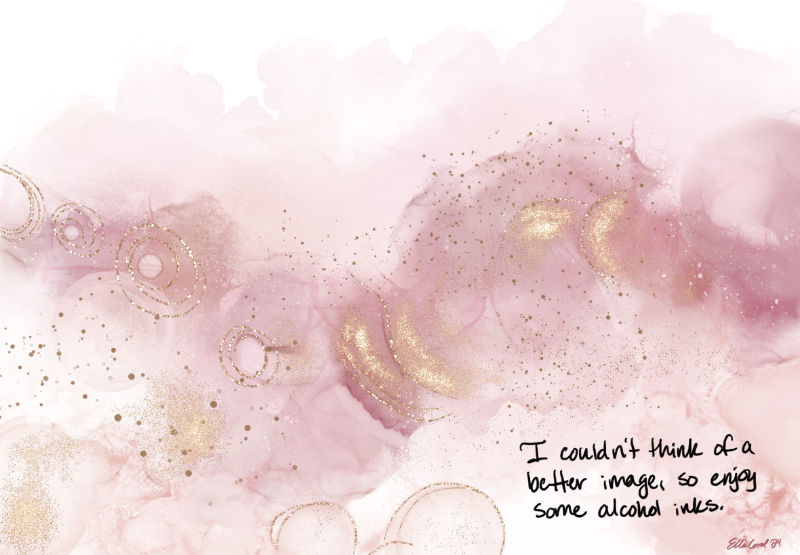Look, Ma, I’m a bonafide grad student!
Or Ellie Finally Sets Out to Do Something Besides Writing Papers for Grades
Make a sandwich and strap in. This could be the last post I make for a while, though I’m starting to make more micro posts, as you can see in the Bluesky widget (to your right… or near the bottom, depending on your mobile screen).
I’m in a brief lull before spring break, but after that, things are ramping up again until early May when classes conclude. One of these courses is about assessment and evaluation, which is just as boring as it sounds. But I’ll try to make it somewhat interesting for you, Dear Reader. Assessment and evaluation is deep-dive research into an institution’s or its customers’ needs and wants and figuring out how—or if—those needs can be met.
It’s terribly fun to daydream about events and services that feel like guaranteed hits. But reality can be brutal, like following a rainbow only to see that it ends at a shopping cart-littered retention pond behind the Gold & Guns Pawn Shop in the bad part of town.
Maybe your patrons have already outgrown their Bridgerton phase, and your themed luncheon flops. Or working parents can’t find time for an evening Python coding workshop you spent months arranging. I’ve heard stories of libraries curating collections that gather dust or trying ideas that never stood a chance in hell (like creating a presence on Second Life—I kid you not).
Assessment can prevent wasted time, effort, and resources. But most people don’t want to do it—and why would they? It’s tedious. It requires environmental scans, interviews, observations, surveys, data analysis, and facing hard truths. While this practice has formally been around since the 1990s, more libraries are (grudgingly) starting to realize its necessity.
And if you’re a research nerd who likes to create deliverables about what you find, it could be the perfect career.
But I’ll see if that’s the case for myself with my semester-long project: Testing the feasibility of a tabletop game collection in a public library by hosting a mini con. (Yes, that’s a sentence I’m using in an actual paper, but I’ll tweak it to sound insufferably academic in the final draft.)
This idea is something I can continue developing because my internship got moved up to the fall. The library I want to intern at is trying to figure out how to get the surrounding community interested in its special collection. While there’s no guarantee people will flock to the collection itself, if we bring them in for events, some people may naturally wander over to it.
Because that’s one way libraries get people to use their core services—by drawing them in with something else. As a result of the event, some visitors become curious about the library itself, perhaps wander around, and they find books, flyers advertising other programs, or just a pleasant place to hang out.
So why tabletop games specifically?
I’ve been thinking a lot about gaming and Twitch chats. If you’re younger, you might have heard older gamers talk about going to each other’s houses as kids, playing two-player games, or watching their friends play. That’s more or less the origin of Let’s Plays and livestreaming—people recreating the experiences they miss.
But my project isn’t about the games themselves. It’s about socialization.
Recently, I watched a webinar by Tony Iovino, Assistant Director at the Oceanside Library in Long Island. He talked about how libraries can help combat loneliness. He opened by sharing how sign-ups for Zumba or canasta fill up almost instantly. People will call in a panic, asking if there’s still room.
Nobody’s joining these activities to burn calories through hot Latin moves or master melds. For some people, this might be the only time they get to be around another live human being. That part stuck with me, and I’m using it as a north star for this assessment project.
(Just an aside: I’m noticing a pattern of New Yorkers and New Jerseyans coming into my life, even tangentially, to offer revelations and inspiration. Maybe the universe is hinting that my best mentors will be straight-talking Northerners… or that I might need to expand my winter wardrobe when I begin my career.)
As much as I enjoy a streamer’s running commentary or the occasional witty comeback from chatters, online socialization isn’t quite the same as meeting people in person. And we are living in a loneliness epidemic, despite the world being more interconnected than ever. Which feeds my belief that people need to step away from their devices more—but they need reasons to leave their screens.
I’d love to recreate the Twitch chat experience in person with library a mini con centered around video games or livestreaming (and the engagement would hopefully be less heinous and gremlinesque). But pulling that off would take a full team, multiple setups, and way more resources than I have right now.
Tabletop games, on the other hand, are mobile and far easier for libraries and stakeholders to organize into a social event. Plus, it makes for a solid addition to my portfolio and a pilot project to refine and pitch elsewhere. I should get one project under my belt before starting something more ambitious.
Most importantly, either of these ideas requires assessing whether patrons want them at all. Just because I like it doesn’t mean they will. That’s just the reality.

I hestitated to write about this at all since I’ve received conflicting information about how much grad students can share. Ethics, confidentiality, and all that. (I had to take a Responsible Conduct of Research course before my twelfth credit hour.) But mini cons and non-literary programs in libraries aren’t exactly top secret affairs—libraries across the world host mini cons and tabletop game sessions, and GameRT is leading the charge in making games of all kinds a regular presence in library spaces.
Even though a tabletop mini con seems like my most feasible starting point, the fact that GameRT is also focusing on video games—and looking more at Twitch as a resource—gives me hope that my pet project has real potential.
